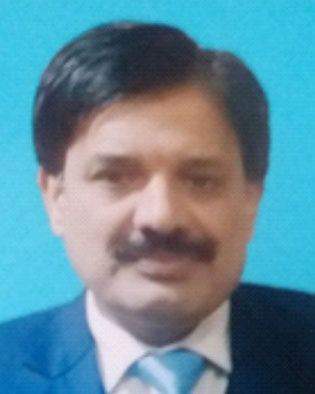Rana Mudassar Riaz
IN the backdrop of
Gujjarpura incident in
Lahore, different groups and parties are lamenting each other for the mishap. The incident has become talk of the town and harbinger of collapsing systemcould be heard everywhere. Like always, the sitting Government is justifying itself on one hand whereas a number of groups including opposition, civil society, NGOs are adamant to prove the failure of the Government.
It has been very unfortunate that the pros & cons of any such incident, are not considered in a transparent and professional manner. The term professionalism is virtually missing in most of the public sector organizations, as this term involves a number of factors including professional ethics and highest degree of responsible behavior.The prevailing culture of public sector organizations is corrupted with adhocism, personal likes, vicious interests, misuse of power and nepotism.
The nepotism either involves relationship of affiliation or meshed up relations through gratifications etc. It will not be justified to put the responsibility of messy affairs on the shoulders of the sitting government but in order to enlist series of failures,the tenures of previous governments, especially after the debacle of military regime in 1988can not be absolved. No pragmatic efforts have ever been made to lay the strong foundations of atomizedrobust and accountable public sector delivery.
The subject of public sector (civil services) reforms were never touched for the last 50 years and even the old system of quota which was introduced in 1964, for the federal services with the clear mentioning of implementation period of only 10 years, has never been revised even till today. The gaps of different service groups are arising day by day and the problem remains unresolved. No formula could ever be devised to amalgamatefederal, provincial, local service groups into a single stream of public service delivery.
The vision of Quaid e Azam gave golden principles to the civil services of Pakistan as guidelines, which include undaunted integrity, dedication and professionalism, beyond an iota of polarization, bribery or nepotism. If the last three decades are viewed minutely, it becomesevident that few hidden hands ensured the ultimate decay of public service delivery. This has shackled solidarity, governance and internal security badly. It has come to lowest ebbs, wherein the difference of clear and performing officials of government machinery, from the vague & nonperforming officials has vanished.
The people supported the present government to bring in power, with high hopes and with the motivation of change. Despite the fact that the political pressure on the bureaucratic paradigm is much reduced in comparison to the previous regimes but no pragmatic efforts has been made to improve the poor state of affairs of public sector organizations. Any positive step takes its roots from a strong will and fearless decisions.The proclaimed will of the government does not correspond to the actions on ground.
In case of the government machinery, if the government designs merit base system involving compulsory premature retirements (maximum up to BS-19), regrouping of different services to earn grade 20 or above, positive incentives to the performing / clear officials, introduction of a uniform system of seniority while taking all the groups on board and speedy punitive measures against defaulters then the falling standards of the public service delivery could be improved. In routine, if the culture of hiding behind the brands of major service groups for compromising the looted government exchequer / corrupt practices, then helms of affairs would further deteriorate.
The notorious cases of few bureaucrats are always in the news who despite their worse integrity, still are celebrated. The government should take a start from anywhere only then the present dip could be resolved. There are hundreds of civil servants who have been ticked for their involvement in corrupt practices and looting the money recklessly, a number of proven inquiries are pending, owing to absence of stern decisions.
At the same time, there are thousands of officers / officials with the dual nationalities even from the main service groups, who are custodian of confidential data and policies, but the government has not touched any such issue. Discussing the recent incident of lawlessness, it is one of the series of such heinous incidents which has few glaring aspects. There are a number of questions which need to be addressed. The very fact that the place of incident of Gujjarpura was not under the specific preview of any law enforcing agency, without having realized that constitutionally each centimeter of Pakistani land has to be safeguarded. The evading attitude of different helplines of police proves the culture of indifferent and irresponsible attitude. Strangely, the police which had inquired about plight of victim lady including GEO PIN location, was the last to reach but the culprits made it away on the exact location. In 2020, the technology is touching the skies and there were a number of evidences, which could be worked upon to trace the culprits. This is a big question mark.
In nutshell, there could be a number of other aspects pertaining to the Gujjarpura incident, the list would be much prolonged. It is high time that the government should exercise its strong will to improve the governance. The government will have to draw avivid line between the clear / efficient officials and the vague / inefficient officials, irrelevant of their service groups / affiliations. The challenges for the policy makers and executive have become far bigger than before. The stated gaps and failures will have to be made up in the coming few month, otherwise the history could repeat itself in a worst manner.
—The writer is a retired Army Officer who served public sector for more than 25 years and holds multiple specializations in management, social disciplines and can be reached at ranamudassar.hd@gmail.com










